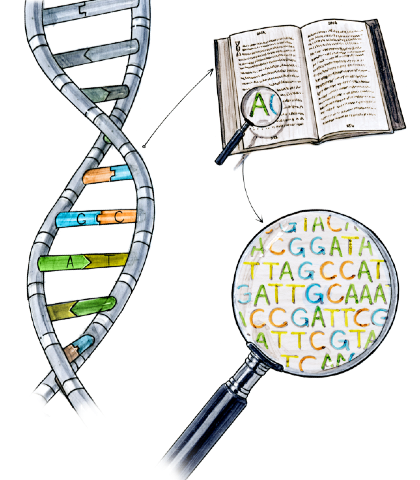
Genopedia
In this section, we will gradually reveal to you the amazing world of genetics so that you can better understand how genetics can be a great tool for improving your health. Take a look at the first two parts, where we introduce some genetic laws in a simple way, and in the second part you will find the journey of your sample from collection to reading the genetic information.
Introduction to the amazing world of genetics
Genetics is a fascinating branch of biology that uncovers the secrets of life hidden in the cells of our bodies. The key to understanding genetics is DNA, which carries genetic information. By looking inside the cell, we begin to discover the amazing mechanisms that shape our physical nature and determine heredity.
The journey of your sample from collection to the "opening" of your DNA
In this section, you will learn about the journey of your sample from collection to the final "deciphering" of your DNA. Thanks to the state-of-the-art technology we use in our molecular genetics laboratory, many of the processes are fully automated. This significantly increases the speed of obtaining the necessary data from your DNA.
How genetics can help patients with mental illness
The treatment of patients with many psychiatric illnesses is quite lengthy, which is due (among other aspects) to the fact that the effect of many medications for these illnesses takes up to 6 weeks or even longer, and there is never a guarantee that the medication will have the expected effect. It is not uncommon in psychiatric care to have to try several different types of medication before finding the most optimal one.
This issue is then logically addressed by the patients themselves on various forums or social networks, where they ask each other which medication has or has not helped whom, when antidepressants will work for them (they usually ask about their specific medication), why they have not yet worked, why their effect is not what they expected, and similar questions.
Drugs are mostly broken down in our bodies by several enzymes that are made by different genes. The relevant genes then contain information about how many enzymes will be produced and also whether the enzyme produced is functional or non-functional. And through this, the genes fundamentally influence what will happen to the drug in our body. Increased or decreased activity of drug-degrading enzymes is not a rare phenomenon.